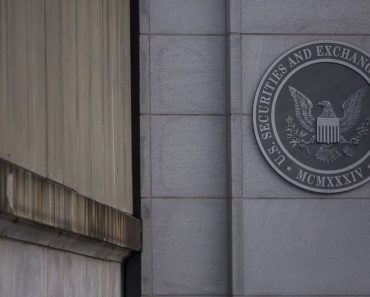[ad_1]
The SEC will zero in on investment advisors’ compliance with the marketing rule, their compensation arrangements and their recommendations of illiquid or difficult-to-value assets in its examinations in 2024.
The Securities and Exchange Commission also will place “particular examination focus” on how advisors protect clients’ personal information and the accuracy and completeness of their regulatory filings, such as Form CRS, according to the 2024 examination priorities the agency released Monday.
The marketing rule, which went into force last November, overhauls how advisors can advertise their practices, allowing them for the first time to use client testimonials and reviews and updating rules to reflect social media marketing.
The SEC said it would be looking at how advisors adopt and implement policies and procedures to comply with the marketing rule, whether they appropriately disclose marketing information on Form ADV and whether they can substantiate claims made in their ads.
“Marketing practice reviews will also assess whether disseminated advertisements include any untrue statements of a material fact, are materially misleading, or are otherwise deceptive and, as applicable, comply with the requirements for performance (including hypothetical and predecessor performance), third-party ratings, and testimonials and endorsements,” the SEC states in the exam priorities.
On compensation, the SEC will assess “alternative ways that advisers try to maximize revenue, such as revenue earned on clients’ bank deposit sweep programs; and fee breakpoint calculation processes, particularly when fee billing systems are not automated,” the priorities state.
When it comes to valuation assessments, the SEC is concerned about “recommendations to clients to invest in illiquid or difficult to value assets, such as commercial real estate or private placements.”
The SEC will place an emphasis on complicated products and novel investment strategies when determining whether investment advisors and brokers are adhering to their standards of conduct — fiduciary duty and Regulation Best Interest, respectively.
The SEC will probe recommendations of “derivatives and leveraged exchange-traded funds, high cost and illiquid products, such as variable annuities and non-traded real estate investment trusts, and unconventional strategies, including those that purport to address rising interest rates,” the priorities state. “Examination focus may be emphasized for investment advice provided to certain types of clients, such as older investors and those saving for retirement.”
The wording for brokers was similar but also included proprietary products and microcap securities and a mention of investors saving for college.
For advisors, the SEC also will probe “economic incentives” they may have to recommend certain products, such as “revenue sharing, markups, or other incentivizing revenue arrangements,” the priorities said.
The SEC will review whether the disclosures advisors make to investors “include all material facts relating to conflicts of interest associated with the investment advice sufficient to allow a client to provide informed consent to the conflict.”
The agency will probe brokers’ disclosures about conflicts of interest, their conflict mitigation practices and their processes for “reviewing reasonably available alternatives.”
Whether it’s in their recommendations of complex products and strategies, how they market their practices or whether they act in their clients’ best interests, the SEC wants advisors to be more forthcoming.
“What they’re seeing is a need for increased disclosures and transparency to the investors,” said Bernadette Murphy, managing director at Vigilant, a compliance consulting firm.
The SEC also put a particular emphasis on private fund advisors, saying it would focus on their calculation and allocation of fees and expenses, timely completion of audits and various disclosures, among other areas.
“The SEC has always focused on fees and expenses,” Murphy said. “They’re going even deeper here.”
Here’s what plan sponsors need to know about bonds now that rates have surged
[ad_2]
Source link
